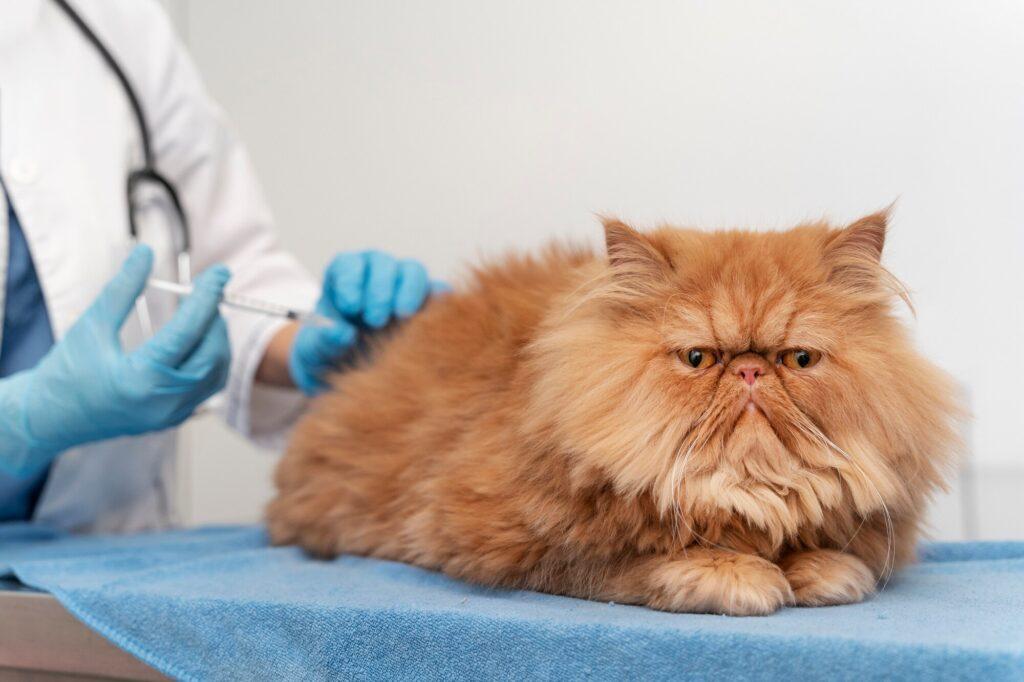Ensuring the health of your pet is a top priority, and two essential preventive measures are deworming and vaccination. Both play crucial roles in protecting pets from infections and diseases, but pet owners often wonder, which should come first? In this article, we’ll explore the importance of deworming and vaccination, their roles in pet health, and the recommended sequence for administering them.
Understanding Deworming and Vaccination
What is Deworming?
Deworming is the process of administering medication to eliminate internal parasites such as roundworms, hookworms, tapeworms, and whipworms. These parasites can cause malnutrition, weight loss, digestive issues, and even fatal complications in pets. Deworming is necessary for:
- Improving your pet’s digestion and nutrient absorption
- Preventing zoonotic diseases (worms that can be transmitted to humans)
- Reducing the risk of parasitic infections spreading to other animals
What is Vaccination?
Vaccination helps protect pets against viral and bacterial diseases such as rabies, parvovirus, distemper, and feline leukemia. Vaccines stimulate the immune system to produce antibodies that fight infections before they become severe. Benefits of vaccination include:
- Protecting against life-threatening diseases
- Reducing the spread of infectious diseases in pet communities
- Enhancing overall pet longevity and well-being
Which Should Come First: Deworming or Vaccination?
Veterinarians generally recommend deworming before vaccination, and here’s why:
- Parasitic Load Can Weaken Immunity
- If a pet has a high worm burden, its immune system is already compromised, making vaccines less effective.
- Parasites Can Interfere with Vaccine Response
- Some parasites, like roundworms, can affect the pet’s ability to produce a proper immune response to vaccines.
- Healthier Pets Respond Better to Vaccines
- Deworming clears parasites that may be depriving pets of essential nutrients needed for a strong immune system.
Recommended Timeline for Puppies and Kittens
- Week 2-3: First deworming (as parasites can be transmitted from mother to offspring)
- Week 4-6: Second round of deworming
- Week 6-8: First set of vaccinations (Distemper, Parvovirus, etc.)
- Week 10-12: Booster vaccines + additional deworming (if needed)
- Week 12-16: Rabies vaccination + continued parasite control
READ ALSO:
- Symptoms of Tick-Borne Diseases in Dogs and Cats
- Tick Prevention and Treatment Methods for Pets in Nigeria
- 10 Common Dog Skin Diseases and Conditions in Nigeria: Tips for Prevention
How Often Should Deworming and Vaccination Be Done?
Deworming Schedule:
- Puppies & Kittens: Every 2-3 weeks until 3 months old, then monthly until 6 months old
- Adult Pets: Every 3-6 months, depending on lifestyle and exposure risk
- Pregnant Pets: Before pregnancy and again before delivery to prevent transmission to offspring
Vaccination Schedule:
- Core vaccines (e.g., rabies, distemper, parvo): Annual or every 3 years, depending on the vaccine type
- Non-core vaccines (e.g., kennel cough, leptospirosis): Based on risk assessment by a vet
Conclusion: The Best Approach for Your Pet
For optimal health, deworming should be done before vaccination to ensure your pet’s immune system is strong enough to respond effectively to vaccines. Regular veterinary check-ups will help maintain your pet’s wellness and provide guidance on the best schedule tailored to their needs.
Need Professional Veterinary Advice?
At Dulham Veterinary Clinic, we provide expert deworming and vaccination services to keep your pets healthy and protected. Book an appointment today to ensure your pet gets the best care!
- Visit Us
- No 23 Crown Court Estate 2, Orunbe close , Oniru. Victoria Island, Lagos.
- Phone Us
- 0806 632 9826
- Mail Us
- help@dulhamvetclinic.com
Frequently Asked Questions (FAQs)
1. Can I vaccinate my pet before deworming?
It is not recommended. Deworming should come first to ensure the pet’s immune system is strong enough to respond to the vaccine.
2. How soon after deworming can I vaccinate my pet?
Typically, vaccinations can be given one to two weeks after deworming, depending on the pet’s health condition.
3. Can deworming and vaccination be done on the same day?
While some veterinarians may administer both on the same visit, it is often best to deworm first and vaccinate a few days later for better effectiveness.
4. Do indoor pets need deworming and vaccination?
Yes! Even indoor pets can be exposed to parasites and diseases through contaminated food, water, or human contact.
5. What happens if I skip deworming or vaccination?
Skipping deworming can lead to severe parasitic infestations, while missing vaccinations exposes pets to dangerous and potentially fatal diseases.

